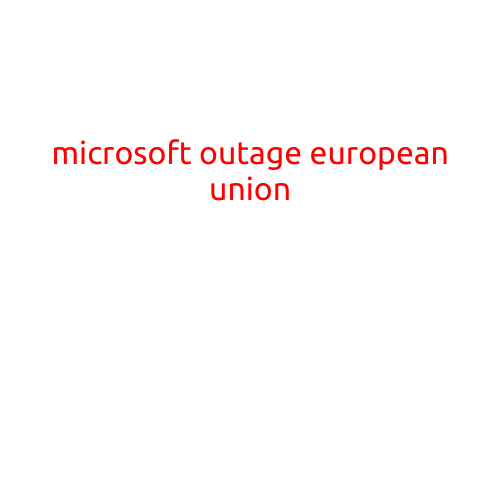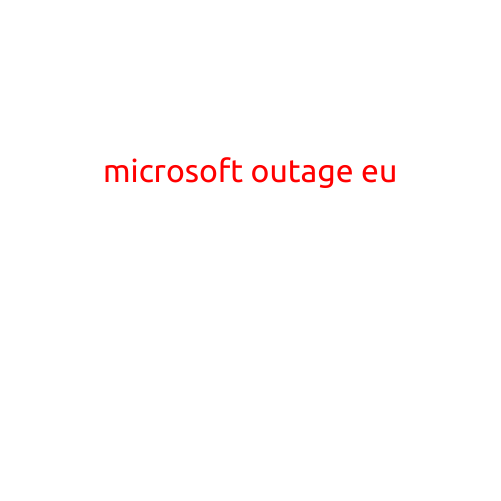
Microsoft Outage Disrupts European Union’s Critical Systems
A major outage at Microsoft’s data centers has caused disruptions to several critical systems across the European Union, affecting millions of individuals and businesses.
The outage, which started early yesterday morning, has impacted Microsoft’s Azure cloud computing platform, Microsoft 365, and other Microsoft services used by governments, businesses, and individuals across the EU.
The European Union’s (EU) internal market and economics ministers have been summoned to an emergency meeting to discuss the implications of the outage on the EU’s critical infrastructure.
“We are facing a serious situation where millions of people and businesses are being affected by this outage,” said EU Commissioner for Internal Market, Thierry Breton. “We urge Microsoft to work with us to resolve this issue as quickly as possible and to provide affected parties with support and compensation.”
The affected services include:
- Microsoft Azure: The cloud computing platform, which provides infrastructure and services for many EU businesses and governments, is currently unavailable.
- Microsoft 365: The popular productivity suite, which includes Outlook, Word, and Excel, is also affected, leaving many users unable to access their emails and files.
- Microsoft Teams: The communication platform is also experiencing issues, making it difficult for employees and organizations to collaborate and communicate.
The outage has caused widespread disruptions across the EU, with many businesses and governments reporting significant losses and delays.
“It’s a disaster,” said a spokesperson for the French government. “We use Microsoft 365 for all our communications and have lost access to our emails and documents. It’s affecting our ability to function and make decisions.”
Experts have pointed to Microsoft’s reliance on third-party data centers and networks as a contributing factor to the outage.
“Microsoft’s complex infrastructure and layered dependency on third-party providers can make it more vulnerable to outages,” said cybersecurity expert, Bruce Schneier. “While Microsoft has made significant investments in its cloud infrastructure, it’s clear that more needs to be done to ensure the resilience and availability of its services.”
Microsoft has apologized for the outage and is working to resolve the issue as quickly as possible.
“We apologize for the inconvenience this has caused and are working to resolve the issue as quickly as possible,” said a Microsoft spokesperson. “We are doing our best to restore services and provide support to affected customers.”
The European Union has called on Microsoft to provide more information on the cause of the outage and to work with the EU to develop a plan to prevent such outages in the future.
“This is not the first time that Microsoft has experienced an outage, but it is a serious enough incident that we need to have a closer look at what happened and ensure that it doesn’t happen again,” said EU Commissioner Breton.
The European Union’s critical infrastructure is heavily reliant on cloud-based services, and the outage has raised concerns about the resilience and security of these services.
“As the EU moves towards a more digitalized and interconnected society, we need to ensure that our critical infrastructure is robust and resilient,” said a senior EU official. “This outage is a wake-up call for us to take a closer look at the vulnerabilities of our critical systems and to develop plans to mitigate these risks.”





